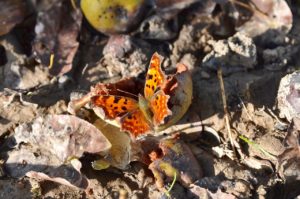NOFA-NY Call to Action: USDA’s Environmental Assessment Did Not Complete Comprehensive, Health and Environmental Review
Farmington, NY — In December, 2016, the USDA’s Animal and Plant Health Inspection Service (APHIS) released an Environmental Assessment (EA) of Dr. Anthony Shelton’s Cornell University application for a permit to carry out the world’s first open-air trial of a genetically engineered diamondback moth (GDM) in Geneva, New York. The diamondback moth is a pest to brassica plants worldwide.
The Northeast Organic Farming Association of NY (NOFA-NY) considers this Assessment to be significantly lacking in comprehensive health and environmental review of the first-in-the-world open air release of the GDM — a novel organism. “We consider this to be a major activity with potentially significant and heretofore unknown health and environmental effects,” said NOFA-NY Policy Advisor Liana Hoodes.
If approved, the proposed experiments would likely be the first to utilize a female-killing trait for GE diamondback moths. NOFA-NY is concerned that the owner of this technology (originally, Oxitec UK – now Intrexon) never completed comprehensive, independent health, safety, and environmental review required by international protocols prior to bringing this organism to the United States.
Hoodes goes on to say that “most of the EA confines its review to the general impacts of the new technology, yet neglects to adequately assess the potential impacts of the trials themselves on farms and residences near the New York State Agricultural Experiment Station (NYSAES) in Geneva, NY and across the state.”
NOFA-NY has detailed its concerns in public comments on the following points:
Lack of transparency. The permit application is not publicly available as part of the Environmental Assessment, so citizens cannot fully evaluate such a major proposal.
No specific details and analysis of the 2015 Caged Trials. In 2015, Cornell’s Dr. Anthony Shelton performed caged trials of the GDM at the NYSAES, but there has been no comprehensive documentation in peer-reviewed journals, and no substantive response to NOFA-NY’s request for data.
Lack of evaluation and mapping of land use surrounding the NYSAES site, including farms, residences, and schools.
Lack of evaluation and modeling of regional climate and wind trends throughout the season, as diamondback moths are known to travel distances on the wind.
Lack of specific mapping and analysis of known agronomic or livestock antibiotic use on the site. Because the GDM technology includes the use of an antibiotic switch, the existence of background levels of antibiotics in the environment is of significant concern.
Lack of comprehensive food safety assessment, despite the likelihood that dead GE larvae on brassica plants may be ingested by various non-target organisms, including humans.
No documentation of potential economic and social effects of the trials and the proposed technology, especially its effect on organic farmers who have considerably less pest control tools available, and whose federal organic certification and livelihood may be compromised or at risk
Lack of full analysis of cumulative impacts and the trials’ effect on the local and statewide environment
Without adequate review, NOFA-NY believes that the proposed experiments may pose unnecessary risks to public health and the environment, and requests that the application be denied. NOFA-NY also points to the work of the following organizations whose comments support a denial of the permit and the request for a comprehensive Environmental Impact Statement: GeneWatch UK, Food & Water Watch, Center for Food Safety, Friends of the Earth, and Consumers Union.” -NOFA-NY
For more information, visit here.
Where Are Your Eggs Coming From???
“If you’re one of those lucky consumers who can buy eggs from a known source, like a local farmer or neighbor, you don’t have to worry about the label on the carton. You can easily verify if the hens producing your eggs roam free on pastures—or whether they spend most of their lives cooped up. But consumers who buy their eggs at stores have to rely on labels—and on the honesty of the brands that apply those labels—for information on how various egg brands are produced.” (You also want to know if the chickens are being fed organic food, or if their diet comes from GMO chicken feed.)
Tell Handsome Brook Farm: Stop Labeling Your Eggs ‘Pasture-Raised’ When They Aren’t!
When a company like Handsome Brook Farm goes out of its way to market all its eggs as “pasture-raised”—even though some of them aren’t—consumers end up paying a premium for a low-quality product. Handsome Brook eggs are sold at over 4,000 retail stores throughout the U.S., including Kroger, Publix, Sprouts, Whole Foods, Harris Teeter, Wegman’s, and independent and natural retailers.”
– Organic Consumers Association
Protect Our Clean Drinking Water
“Too many communities have aging infrastructure without enough resources to fix problems. Too often, communities turn to private water companies for a quick fix that ultimately hurts ratepayers.”
– Food and Water Watch
Sign the petition here to ask your lawmakers to support access to safe and locally managed drinking water for all!

Comments are closed.